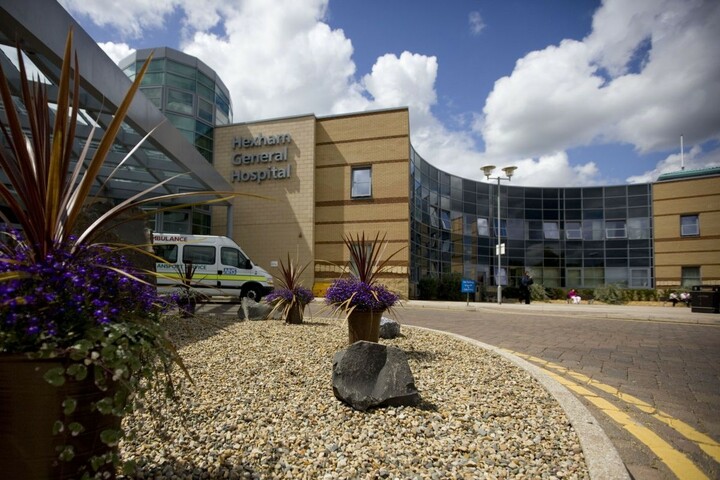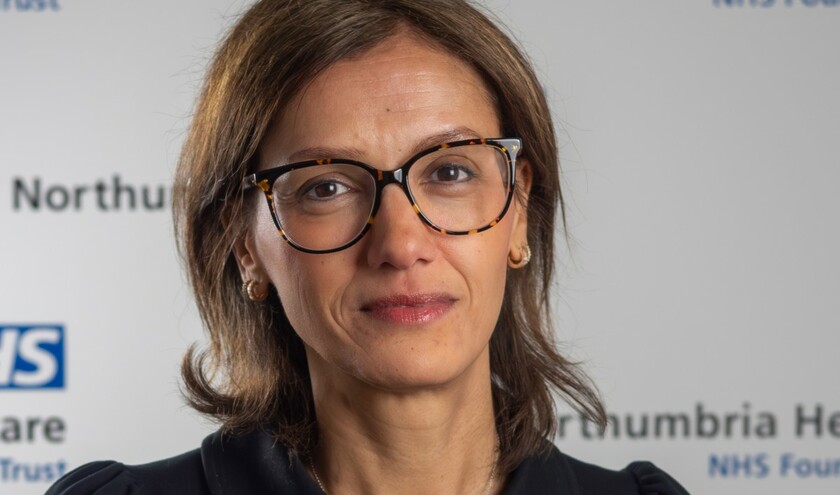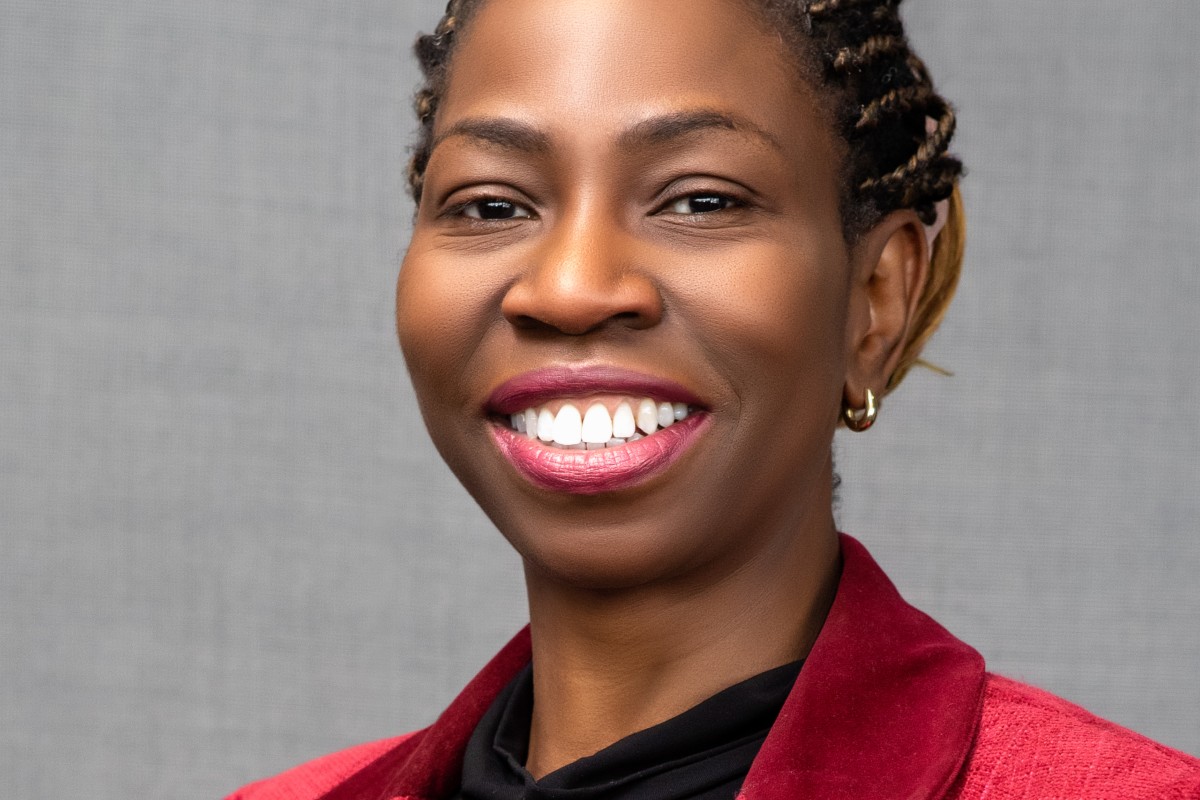Dr Bartoli stepped into the big shoes of Sir Jim Mackey when she was appointed as his replacement as chief executive of Northumbria Healthcare in January 2024.
‘Jim has been a huge figure in Northumbria,' Dr Bartoli said. ‘It was very important for me that the organisation didn't take an emotive dip once he left. It's credit to our teams and our clinical leaders and the executive team that didn't happen.'
Having worked her way up since joining the trust in June 2003, Dr Bartoli said it had been a ‘real privilege' to lead somewhere where she had spent her formative years after coming into the NHS with a background as a scientist. During her first year, Dr Bartoli's priority has been on being ‘really clear' on the trust's clinical services offering and how it develops going forward.
With the trust's specialist emergency care hospital having launched 10 years ago, Dr Bartoli said she wanted to begin the conversation on what its next big clinical configuration change will be.
‘We started the conversation last year and then the three big directives from Wes Streeting came out,' she observed.
‘One of our big pushes was very much around digital and about moving care from hospital out into the community so it aligned really nicely with those.'
Digital …
The chief executive acknowledged the trust's digital offering had been ‘really poor' when it was one of the organisations worst hit by the ‘Wannacry' ransomware attack in 2017.
‘We realised that while we had invested heavily in our clinical services, we had ignored IT,' she noted.
‘After Wannacry, the board made a commitment we would invest in IT and as a result nobody would recognise where we are now. Our digital team is probably one of the best in the country and some of our senior digital leaders are renowned for what they can do.'
The trust built its own contextual EPR viewer and noting application for around £2m in July 2022.
‘From a money saving point of view that's pretty phenomenal and all of our clinicians use it across the board and they're completely happy with it,' said the chief executive.
The trust has also invested in its own robotic process automation team to develop tech to carry out manual data entering.
‘From an efficiency point of view that really supports some of the transitions we are trying to make internally within the hospital that also provides some external capacity as well,' Dr Bartoli said.
Northumbria Healthcare has introduced technology in terms of patient reminders and carried out targeted work on facilitating engagement with different population demographics with high DNA rates. The trust boss said the next focus for digital was monitoring technology to help keep patients at home. While Northumbria Healthcare is still to fully explore assistive technology to help people stay at home, Dr Bartoli said its main focus has been on its Virtual Ward offering and developing the cultural shift required to make that happen.
… to community
In terms of the second big shift from hospital to community, Northumbria Healthcare is focusing on developing its care home strategy.
‘This is where our close working with local authority colleagues and primary care really starts to come into its own, which will in the longer term support our neighbourhood strategy,' Dr Bartoli said.
‘We all recognised we were doing a similar job in the same place so we asked, "how do we do this differently?"
‘It's been a big focus in terms of how we push out and that not being a hospital driven thing. That has to be done at a community level.
‘We have community services and we have really strong relationships with both of our local authorities and also our primary care partners.'
With ‘duplication' being the buzz word in Government following the announcement of NHSE abolition, Dr Bartoli said it was important to ensure people were not covering the same ground when working with local partners.
‘It's important we work out who he really needs to be on the pitch and redeploy resources in a different way,' she said. ‘You don't need to have 16 people going into one thing at the same time when actually four people could probably manage it and we can use the 12 people doing something else.
‘The natural instinct is to say we need more money. I am happy to try and find and source more money, but I need to know we've really challenged ourselves in terms of what we're doing now so if you always turned left what happens if you turn right? Does that give us a different outcome?'
Patient voice
Dr Bartoli said continuously measuring patient feedback was vital to ensuring the trust continued to provide outstanding care.
Every ward is independently surveyed twice a month with a series of questions in domains around caring, privacy and dignity, co-ordination and discharge, which are fed back within 48 hours.
In addition, the trust has developed a real time emergency department survey that evaluates performance on waiting times.

Waiting times
‘We're an extremely high performing organisation when it comes to waiting times, but we are not consistently delivering the 95% constitutional standard although we are much higher than the NHSE standard of 78%,' Dr Bartoli said.
The chief executive said delivering the constitutional standards was what the trust strived to get back to.
‘It's things like that that help us get that CQC outstanding rating because we want to go above and beyond what the national expectations are,' she said.
‘We believe the constitutional standards were put in for a reason and we've always strived to achieve that, be that around cancer, RTT, diagnostics or ED.
‘We are top when you benchmark us against the ED standard and second in the country for RTT and we want to hit the constitutional standard within two years.'
Dr Bartoli said she broadly agreed with the Government's reduction in the number of targets.
‘Sometimes you can't see the wood for the trees so for me the elective care and ED targets are the core ones,' she noted.
‘But that doesn't stop an organisation from working on a whole host of other things that we think are important.
‘All services are interconnected. You can't deliver elective care without delivering your diagnostic standards. And if you are delivering your diagnostic standards, it has a huge impact on your cancer pathways. You can't do one without the other.'
Dr Bartoli said Northumbria Healthcare had done a lot of work on looking at processes in order to bring down elective care waiting times, including chronological booking and the use of advice and guidance.
‘Some of our clinical teams have wiped off real long waits by working closely with primary care around advice and guidance and advice and refer,' she noted.
‘We have also learned a lot about our clinic utilisation and how we ensure they are fully utilised in the processes that go on in the background.'
Northumbria Healthcare launched a front door streaming service in November 2024 to ensure patients get to the right person at the right time at the right place.
Dr Bartoli said the initiative had had a ‘real impact' while acknowledging this had been limited by the number of sick people arriving during winter.
The chief executive said the programme remained a ‘work in progress' with admissions criteria continuing to be refined.
‘There is between 25-30% of ED attendances that don't need to be there,' she noted.
The trust has a specialist emergency care hospital with a traditional ED department and a number of off-site urgent treatment centres, and boasts an on-site ambulatory care unit that takes surgical and medical patients.
On discharges, Dr Bartoli said the trust had one of the lowest delay rates in the country; while acknowledging it had lost 25,000 bed days at a cost of £8.9m in 2024.
‘There's still work to do,' she admitted.
‘We are in a constant dialogue with our local authorities on what else we can do differently and looking at what group of patients get stuck.'
The trust also has on-site social care teams to help tackle the issue.
There is a ‘team ethos' focused on getting people back home with a domiciliary package if possible, for the benefit of the patient and in order to contain costs.
NHS restructuring
Addressing the current backdrop in terms of the Government's radical restructuring programme, Dr Bartoli acknowledged that ‘something different had to be done'.
‘I think we've tweaked around the edges as much as we can,' she said.
‘On a personal level, and I would say this, if anyone can do the job, it's Jim.
‘He's got a lot of credibility within the NHS and has done a massive national role before when he was at NHSI.'
The trust boss said transparency of funding announcements had been ‘really helpful' as well as boards having a clear level of responsibility and accountability.
‘I'm always a "glass half-full person" and there's an opportunity here to really embrace doing something different that aligns with the three shifts,' she noted.
‘I'm looking forward to the 10-Year Plan coming out to really say "what are the handful of things we can really get out teeth into?"
‘We have already started on that and I think the direction we are heading in is the right one.
‘The big thing for NHS providers at the moment is to give hope to their staff that something is going to change.
‘There are obviously difficult conversations that need to happen, but we must keep that optimism.
‘It's really important as leaders that we make sure our staff know we have got their backs and we're trying to move forward for our patients because that is what is key to our staff.'
Dr Bartoli said providers had a ‘huge task' on delivering balanced budgets this year and there had been a ‘clear marker in the sand' in terms of reducing corporate staffing numbers.
The chief executive said: ‘We deliver a surplus budget position due to the strength of our core clinical services which is supplemented by commercial activities. But like all parts of the NHS we a facing a challenging structural position overall. We need to make around £41m worth of efficiencies and are on track to deliver that.'
On reducing costs, Dr Bartoli added: ‘We have tried as an organisation to ensure people are not unduly worried and are keeping people informed,' she stressed.
In terms of frontline staffing cuts, Dr Bartoli said these will be focused on bank and agency as well as ‘natural turnover'.
10-Year Plan
Looking forward to what she would like to see in the 10-Year Plan, Dr Bartoli said: ‘I would like to see providers being allowed where they meet certain criteria to act in a way that is right for their communities.
‘I am excited to see what the true shift in care out of hospital into the community means and understanding what we mean by neighbourhood care.'
She said making a change in terms of how a system can be responsible for commissioning its activity as well as providing that activity could be a ‘real game changer'.
All eyes will be on the big reveal in June.
If you would like to appear in The Big Interview email Lee Peart at l.peart@hgluk.com



